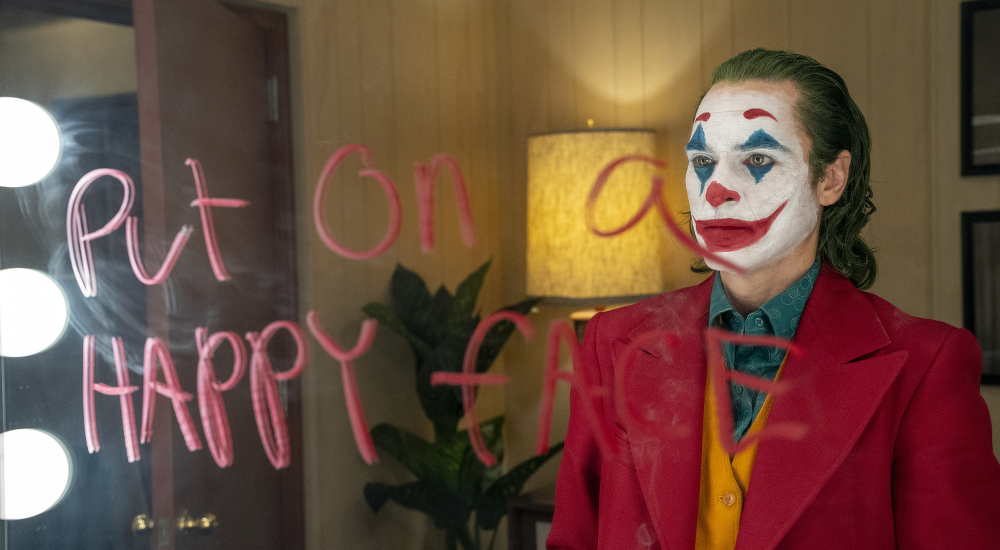This article contains major spoilers for Joker. You've been warned.
Late in the film, Arthur Fleck (Joaquin Phoenix) has applied expert clown make-up and donned a new suit for his appearance on Gotham talk show Live with Murray Franklin. He's just come from the scene of a riot he exacerbated, where a person was shot and two police officers were left in critical condition. Most of the rioters were wearing clown make-up or masks. "I'm not a political person," Arthur tells Murray (Robert De Niro) and his producer (Marc Maron). It's just "part of my act," he insists.
And therein lies the problem with Todd Phillips' Joker. It parades itself as a film with something to say about society, about capitalism, about mental illness. But it doesn't. By lacking a clear point of view, and claiming it doesn't intend to do anything, it all feels like empty bullshit. It's the equivalent of that guy in your poli-sci class who always wanted to play devil's advocate without committing to any actual philosophy.
Heath Ledger's take on the Joker in The Dark Knight endures not just because of his incredible, Oscar-winning performance. There, his agent of chaos works because he's a supporting character, one whose backstory is irrelevant and thus open to all kinds of theories. He exists solely to upend Gotham City, intentionally afflicting its criminal underworld, its law enforcement and its citizens. Gotham is on fire at the end of Joker too, but Phoenix's Joker had no motivations beyond self-preservation, revenge and attention. He unintentionally lights the match by going full Bernie Goetz on three Wall Street douchebags on the subway. The downtrodden of the city then destroy their own home, using Joker as an inadvertent symbol. There's maybe something to that, but Phillips is too self-satisfied to highlight that, making the whole film feel deeply nihilistic. As was said of Ledger's Joker, "Some men just want to watch the world burn."
This is now the second Batman-connected film to include an Eat the Rich subplot, but neither this nor The Dark Knight Rises knew how to make it effective. In Joker, there's no restitution for the poverty-stricken residents of Gotham. Thomas Wayne's wealth isn't redistributed; he's thoughtlessly gunned down in a back alley. And we must watch as he dies and Martha Wayne's pearls fly off her neck and onto the wet pavement for the 80,000th time, leaving young Bruce an orphan. While The Dark Knight Rises didn't make much of this either, it at least had the good sense to bankrupt Wayne Enterprises on its way to ruling the city with fear (by, uh, driving around a truck with a nuke in it and almost no security around it).
Phillips has done Joker no favors by positioning it as an Important Film, and not just a comic book-adjacent riff on Taxi Driver and The King of Comedy. To make things worse, he insists he had to make this film because he was "forced out" of the comedy world because of "woke culture." Maybe these days we'd prefer if our comedies didn't have homophobic and transphobic "jokes" like the first two Hangover films, dude. (I assume the third film wasn't any better, but like most people, I didn't see it.)
Overall, Joker is one of the most thoroughly unpleasant films of the year. It never stops talking, but doesn't have anything valuable to say.

